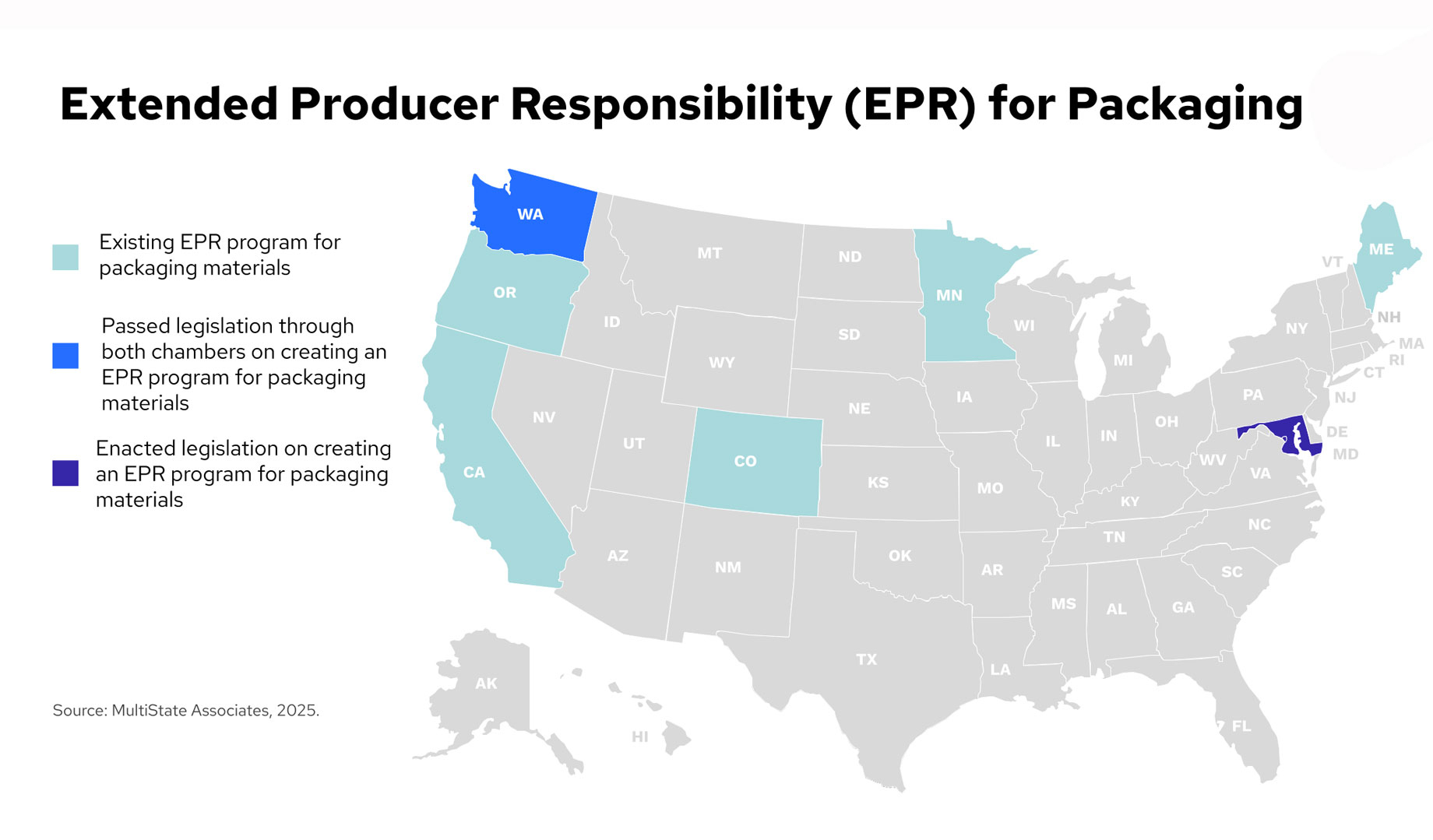This week, Governor Wes Moore (D) signed legislation, SB 901, to make Maryland the sixth state to have a comprehensive extended producer responsibility (EPR) program for packaging materials. The bill requires packaging producers, represented individually or through a producer responsibility organization (PRO), to submit a plan for how to manage the end-of-life cycle of covered materials to the Maryland Department of the Environment for review and approval on or before July 1, 2028.
EPR programs have been an emerging focus of the ICSC ESG Committee, as new legislation has become a popular solution to managing the end-of-life of consumer packaging materials. Under most EPR packaging programs, producers and sellers of packaging materials pay fees into a designated PRO as a way to encourage the use of more sustainable packaging and invest in new recycling processes that promote circularity. EPR programs are designed to shift the responsibility and cost burden of recycling away from state and local governments to private industry.
In recent years, states have taken a lead role in advancing their own EPR packaging programs. Five states – California, Colorado, Maine, Minnesota and Oregon — have enacted EPR laws since 2021 and are in the process of implementation. For example, under Oregon’s EPR program, producers must have registered with a PRO and submitted data about their 2024 distribution in the state on March 31. Compliance with these requirements is necessary to continue selling or distributing covered products in Oregon after July 1.
This year, lawmakers in 15 states have introduced 46 bills related to EPR packaging programs. In addition to Maryland’s bill, lawmakers in Washington are expected to enact an EPR bill (SB 5284) this year as well. Both states have based their legislation on Minnesota’s EPR bill (HF 3911) from last year, which represents a more business-friendly model. The momentum behind these versions highlights a more positive trend across the EPR landscape, where new policies give industry (through the PRO) more control over the implementation and structure of state-wide EPR programs.
Finally, New York lawmakers are considering two competing EPR proposals that drastically differ from one another. The first pair of bills (SB 5062 and AB 6191) largely follow the model that other states, such as Minnesota, have adopted. Senate Bill 1464 and Assembly Bill 1749 present a new model for managing recycling that might create compliance difficulties for producers looking for uniformity across state programs. With lawmakers in Albany set to adjourn on June 13, there could be a flurry of activity on EPR in the closing weeks of the session.
